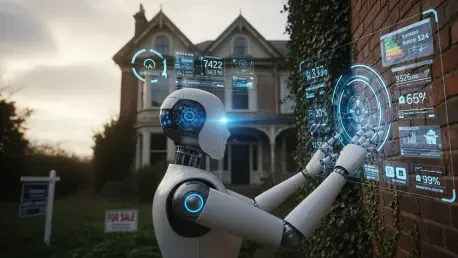A Shift in Real Estate Valuation Practices
Artificial intelligence (AI) is radically changing how urban property assessments are conducted, surpassing traditional methods dependent on human appraisers. As cities continue to expand and evolve, this shift is crucial for ensuring accurate property valuations, which are pivotal in determining property taxes that support municipal services and infrastructure. AI has emerged as a powerful tool, enabling municipalities to improve efficiency, accuracy, and fairness in real estate valuations, thus reshaping the urban landscape.
Unveiling Market Trends in AI-Driven Valuations
The implementation of AI in property assessments signifies a profound shift from manual appraisal methods characterized by potential biases and inefficiencies. Historically, leveraging human judgment for evaluations posed challenges, including higher costs and varying degrees of accuracy. This has catalyzed the integration of AI technology, which empowers cities to execute property assessments with unprecedented precision. AI algorithms rapidly analyze extensive datasets, evaluating properties based on variables like location, square footage, market dynamics, and historical sales data. This innovation not only streamlines processes but also allows appraisers to focus on properties demanding a more in-depth examination.
Enhancing Fairness and Transparency with AI
AI’s capacity to promote equity and clarity in property valuations is another significant theme, addressing disparities in boroughs where inaccurate assessments have historically impacted homeowners. By minimizing human bias, AI-driven solutions offer more consistent and fair evaluations, which are essential for maintaining balanced property taxes. Such uniformity across assessments ensures taxes reflect true market conditions. Nonetheless, potential algorithmic biases remain a concern—prompting an ongoing dialogue centered on safeguarding transparency and trust in AI systems through continuous oversight and adaptive criteria.
Navigating Regional Differences and Technological Advancements
The adoption of AI in property assessment varies; regional differences mandate specialized AI strategies in line with varying property markets and regulatory environments. Machines equipped with learning capabilities further enhance assessment precision by capturing the unique characteristics of local markets. As investigative technologies evolve, there is a need to balance innovation against potential oversight risks—ensuring AI solutions realistically depict diverse market conditions without overlooking regional complexities.
Reflections on AI and Property Assessment Dynamics
The findings underscore several actionable insights into AI’s transformative role in property assessments, highlighting efficiency, equitable valuations, and enhanced modernization of processes as significant benefits. For municipalities, the growing trend of digital transformations calls for strategic implementations that capitalize on the advantages of AI without neglecting data protection, diversity in input data, and human review to ensure accountability. As cities seek smarter governance strategies, the expanded use of AI promises substantial improvements in property taxation, offering potential for sustainable growth and community trust.
AI has become a pivotal element in modernizing urban governance approaches, representing a milestone in elevating property valuations’ accuracy and transparency. With its far-reaching potential, AI’s role in real estate marks a transformative era for municipalities, inviting further exploration into its capabilities and implications for future urban development strategies.









